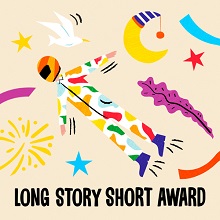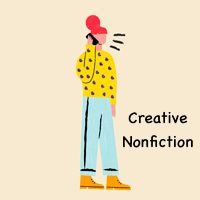
How had I been driving? Not badly, I thought. But as Keighley, the brunette, fretted about youth curfew, I wondered whether things would go from bad to worse when the cop saw how young we were. And that wasn’t all. In the joy of our Jane Eyre movie night, after Adam, Keighley and I started using English accents to compare kissing techniques and quip, “tell me how I’m s’posed to breathe with no EYRE,” I reacted to the flashing lights in my accent—“oh damn.” Softly. Edgily. Adam chuckled. But did I just add a second, omniscient pair of eyes to the cop’s?
Prim and proper for so many years, I found cursing surprisingly effortless. In the past, I had been the girl who would jolt whenever Jun Geon, a deep-voiced classmate who looked like a Korean version of Goblet-of-Fire era Harry, responded to fifth-grade frustrations with curses. I would chide the backseat boys (of the bus, that is) for blasting raunchy music. I was even proud not to know how “that” could be “what she said,” at least until the boys in Mandarin class turned their sexual teasing on me. I wore my model student status like armor. Better not to make friends with the wrong sort.
Leaving all of my bitterness and insecurity at home was useful. It meant that in time, school connected me with friends of the right sort! Each new friend complemented me in my Anglophilia or quirkiness or both: Sadie filled me in on all the BBC I couldn’t watch, Mels wrote me Austenish notes, Keighley lent me John Green books, Shae and I made playlists for the boys we admired. And there were a few of those: Channing of red rover, Ben of family-friend Thanksgiving, Hank of the marvelous iPod “Big Tuna.” Little happened there. I liked Darcy and the Tenth Doctor better anyway, with their thick hair and their safe distance.
Distance was important. I had reason to believe my friends would only stick around if the quirks they saw were the cute, funny ones. My family saw pain and a scatterbrain and didn’t much like it. I was the lone Addams child in a family of Von Trapps, or to quote my dad, a “bitch.” But what hurt more was his cold diagnosis: “too complicated.” Too much to deal with. Not cheery and malleable like my mom. Not enough good to outweigh the bad.
Back at school, I stood next to the broad-shouldered, pleasant-smelling Drew in choir and decided to ask him to Sadie’s. I scribbled the invitation on his sheet music with my sonic screwdriver blacklight pen. I didn’t expect to drop Drew for his best friend. Adam had been the tall guy with the impressive cheekbones, friend of friends, so gorgeous I couldn’t say anything to his face. But then at the dance we bonded over musicians, particularly British ones. I reckoned he knew everything there was to know about the Beatles. He took my Mylo Xyloto and raised me In Rainbows. I got Adam’s number, did not walk Drew to his door, and the night ended.
I saw more and more of Adam in the next couple of years. We exchanged homemade CDs and wordy texts and Who-inspired prom invitations. We did not exchange love confessions. Not when Keighley offered one of her own for Adam, not when he and I were alone in the home he was house-sitting and he hugged me extra long. Adam was my very cute friend, and he was just as weird as I was, and there were no other expectations. Only as a lonely college student did I consider what made him different, what made him so suitable for the affection I refused to entertain.
After the cop warned me about my expired registration and was assured by Adam that we had simply been watching period drama, these aren’t the teens you’re looking for, the cop drove away. We paused to watch him disappear. Keighley sighed.
“I’m so glad he didn’t cite us for youth curfew.”
“And I’m sorry I swore,” I said.
“It’s fine,” Keighley said—a generous reaction from someone who sharpied out all the curses in her copy of Tina Fey’s Bossypants. And then Adam surprised me.
“It was adorable.”
Adorable? Adorable! What a concept. What a sweet, irreverent concept!
We had a lot of fun times, Adam and I, but this is my favorite memory of him. That night I saw myself in his eyes and the reflection was so much brighter than I expected. And I? I had nothing to fear. Nothing to hide.
Perfectionism makes for brittle armor. One minute you’re cursing, poshly, under duress. The next you’re reading Atonement, or buying the Cards Against Humanity starter box, or replacing Mr. Darcy with Jon Snow of Game of Thrones. Not swearing hadn’t saved me. Swearing didn’t—doesn’t—either, and I don’t particularly like the taste on my lips. But I do like knowing how these words can be more than crass or cruel. They can be funny or sensual. They can be endearing. Or they can mean nothing at all.



